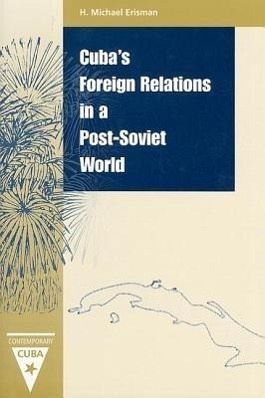
Cuba's Foreign Relations in a Post-Soviet World
Versandkostenfrei!
Versandfertig in über 4 Wochen
18,99 €
inkl. MwSt.

PAYBACK Punkte
9 °P sammeln!
In his analysis of the broad scope of revolutionary Cuba's foreign relations, H. Michael Erisman emphasizes two key aspects: Cuba's adjustment since the disintegration of the Soviet Bloc and the ongoing confrontation between Cuba and the United States. Using revolutionary Cuba's foreign relations as a case study in counterdependency politics, he proposes that the country has always been highly sensitive to the danger of overdependence on an external power and examines Havana's implementation of this stance in both the Cold War and post-Cold War periods. As the first comprehensive single-author...
In his analysis of the broad scope of revolutionary Cuba's foreign relations, H. Michael Erisman emphasizes two key aspects: Cuba's adjustment since the disintegration of the Soviet Bloc and the ongoing confrontation between Cuba and the United States. Using revolutionary Cuba's foreign relations as a case study in counterdependency politics, he proposes that the country has always been highly sensitive to the danger of overdependence on an external power and examines Havana's implementation of this stance in both the Cold War and post-Cold War periods. As the first comprehensive single-author treatment of the subject, Erisman not only tells readers what happened to Cuba's foreign relations but also offers a basis for understanding them.


